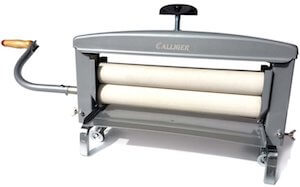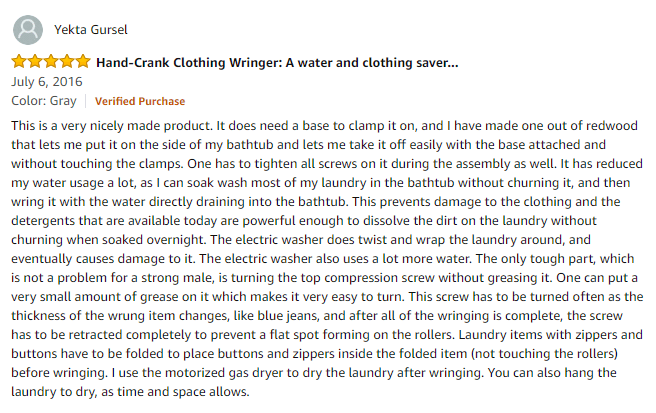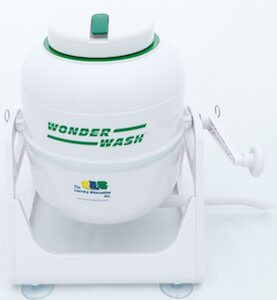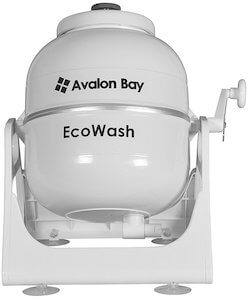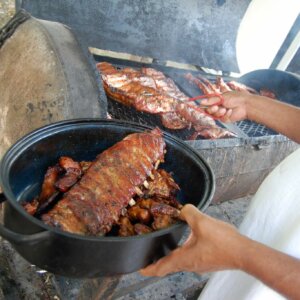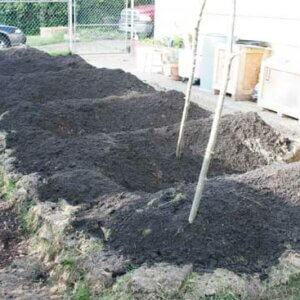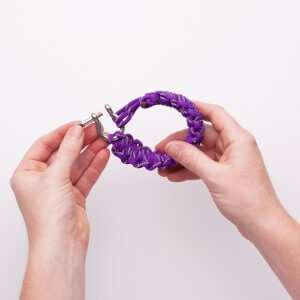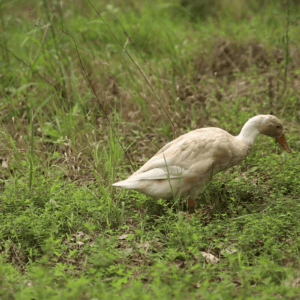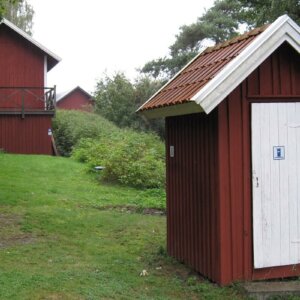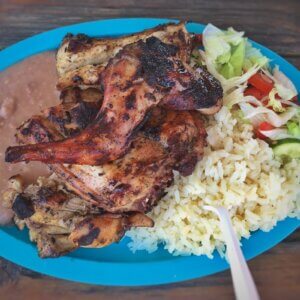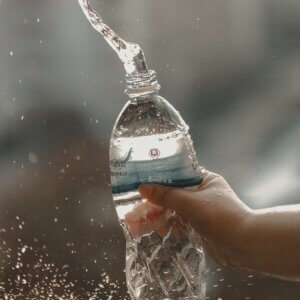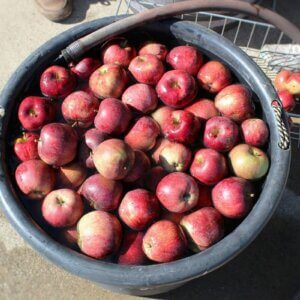Electric washing machines use a lot of resources. Even “high-efficiency” washing machines use at least 10 gallons of water per load and require 500 watts of electricity. And they take up a lot of space. Fortunately, there is a time-honored, sustainable, and smaller alternative.
Hand-crank washers and hand wringers are easy to use and use way less water than electric washing machines. They’re a good option for anyone who wants to slash their utility bills. If you live in an apartment, you’ll save yourself trips to the laundromat, quarters, and the accurate sense that your clothes have been washed in someone else’s body odors. Wash days are no longer such a hassle!
If you live off the grid, you’ll be able to avoid using electricity or conserve what you store up in batteries from solar, hydro, or steam plant charging.
Our Top Picks
Hand Crank Clothes Wringer by Calliger
Estimated price: $180
The Calliger washer features 14-inch wringers, large enough for big items like towels. The rollers are smooth and durable due to their zinc coating. The wringers are made out of hard rubber, encouraging an effective removal of excess water from clothes and towels.
The attached clamps are angled, allowing you to attach the wringer to a variety of different buckets. The frame is made out steel, offering a strong and stable unit that will be able to handle whatever you throw at it. The wood handle is finished with lacquer to prevent water damage and deterioration.
This hand-crank clothes wringer will allow you to reuse whatever water you’ve drawn because it has a movable plate that allows you to direct the flow of used water back into the laundry bucket.
Reviewers mention that this is a solid, well-built unit that effectively removes excess water from your laundry. One reviewer cautions that there is a bit of a learning curve, but you’ll come across that with any wringer washer unit. Another reviewer mentions that screwing the clamp tight can be a bit tough, but once its tightened, the wringer stays stable and secure for the duration of your laundry.
Here is one of the reviews from this unit:
WringMaster Wringer Washer
Estimated price: $150-170
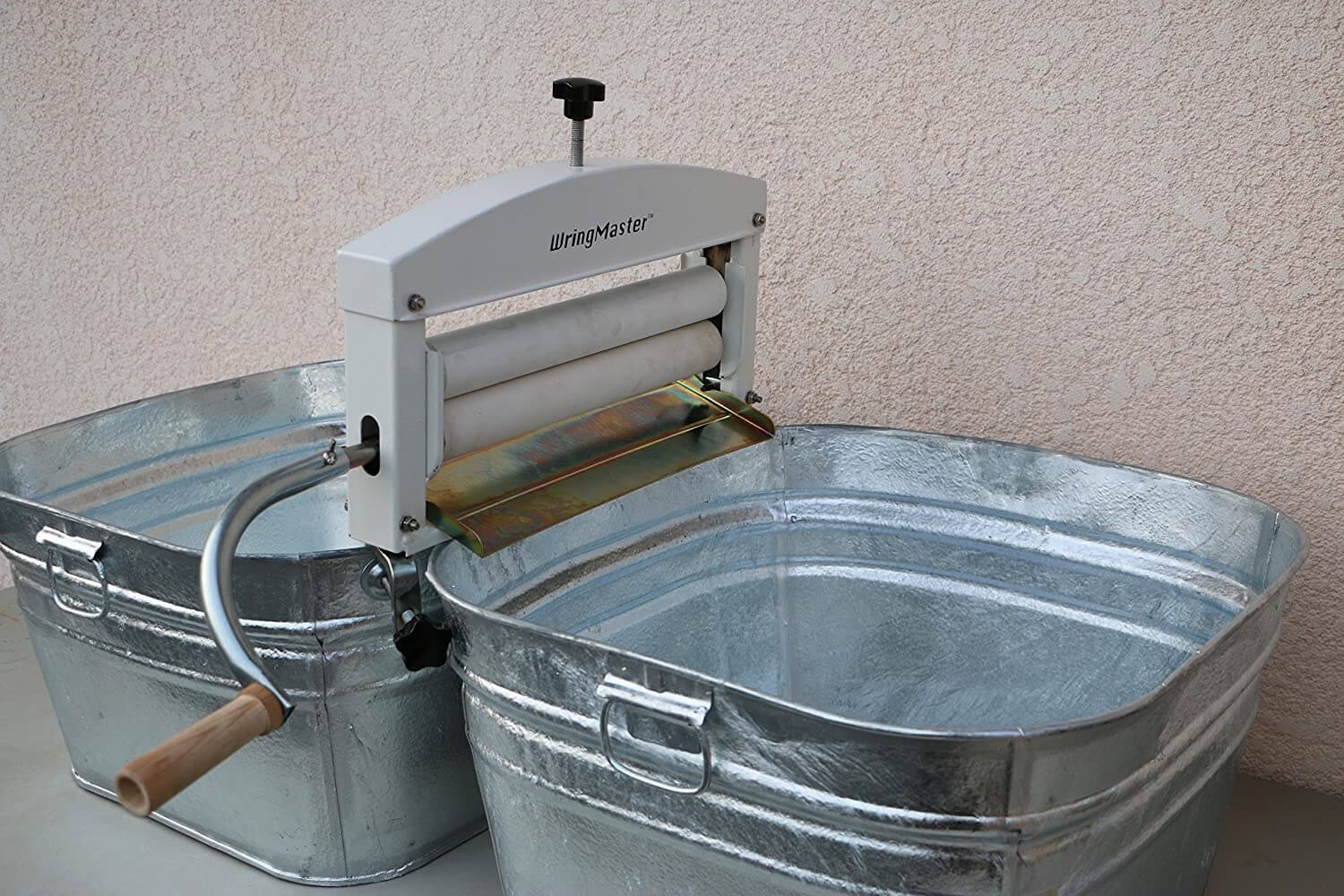
Featuring a traditional hand-crank design and a 14-inch opening, this wringer washing machine is designed with everything from undergarments to large towels in mind. With an ergonomic wood handle and solid hardwood bearings, this wringer is made to last. Stainless steel hardware resists rust and wears and offers solid construction that provides a sturdy addition to the wood design.
This wringer is designed to be mounted to either a round or square galvanized tub with the included clamps. The rollers themselves are made out of a hard rubber that effectively squeezes out water while allowing for buttons and zippers to move through without getting stuck.
One reviewer mentions that this wringer is exceptionally heavy and well-built, staying stable while you do your laundry. Another reviewer mentions that this unit is a bit too wide for a standard 5-gallon bucket, so you may want to go with a larger galvanized trough if you choose this wringer.
Here is one of the reviews from this unit:

The Laundry Alternative Wonderwash
Estimated price: $40-50
The Wonderwash is an all-plastic, hand-cranked barrel washer. The Laundry Alternative claims that the Wonderwash uses even less water than hand washing. The wonderwash is available in 4 different colors and features a one-click lid lever that makes removing the clothes from the washer a breeze.
It can wash up to 5 pounds of laundry at a time—not that much if you’re doing laundry for a large family, but plenty of capacity for a single person.
You can simply pull washed clothes out after you’ve cranked a wash cycle—the water won’t have a chance to splash out of a basin as it would with a wringer. The Wonderwash doesn’t have a motor or any internal moving parts, making it off-grid and completely portable.
One reviewer mentions that as far as capacity goes, the Wonderwash can fit about half the amount of a traditional electric washer and that the clothes come out exceptionally clean. Another reviewer mentions that there’s a bit of a sweet spot in terms of how fast you crank the handle. If you crank it too fast, the clothes can get stuck to the side of the washer, resulting in clothes that are less than clean. Alternatively, if you crank the handle at around 1 turn per second, the clothes turn out sparkling.
Here is one of the reviews from this unit:
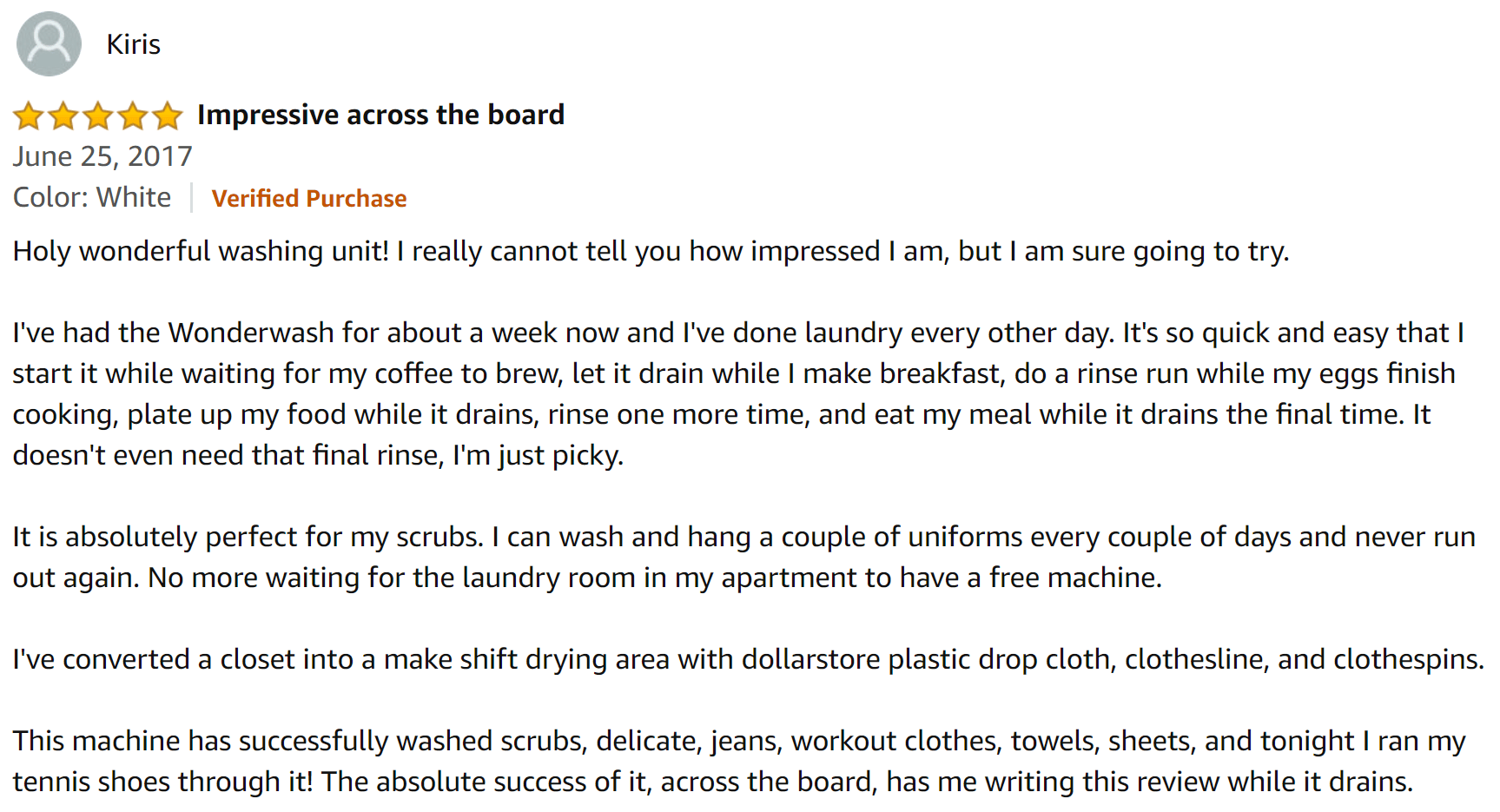
Avalon Bay Ecowash
Estimated price: $50-60
The Ecowash is very similar to the Wonderwash.
In fact, the main difference that between the two is that according to Avalon Bay, “The unique design of the Avalon Bay EcoWash features none of the agitators or protruding elements on the inside, unlike other mini-washers that end up tearing apart your clothes.”
The EcoWash hold 5 pounds worth of clothes and has a 30-day money back guarantee if it doesn’t work for you.
Reviewers mention that the EcoWash completes a cycle in about two minutes, and they recommend the optional rinse cycle to completely remove all the soap. Another reviewer mentions that the seals on the EcoWash are very effective and that they’ve never had an issue with leaks.
Here is one of the reviews from this unit:

What To Look Out For
Capacity
Hand-crank washing requires three things from the person doing the laundry: strength, time, and patience. A higher capacity unit can demand less of your time and patience, but a good deal more of your strength.
Water Usage
We’re big on conservation around here. We’re also big on hauling fewer buckets of water from the well. Home washing machines use between 10 and 20 gallons of water per load. Once the wash is done, all the water is flushed away. When you use a wringer washer, you may use the same amount of water, but you can reuse it for multiple loads. And when you’re done, you can use it to water your garden.
Wringer Or Barrel
A wringer will speed up the drying process and allow you to reuse more water, or press clothes that you’ve just steamed. A barrel washer will allow you to wash more clothes faster, but you’ll have to do the wringing yourself.
Wringer Washer Costs
Wringer washers available for sale online range in cost from approximately $50 to $170. The most important factors in the cost of wringer washers are:
- Water and laundry capacity
- Material
- Wringer or barrel style construction
The least expensive wringer washer we’d recommend is the Wonderwash. The cost is low because it’s made out of plastic and is a barrel style washer.
The most expensive wringer washer on our list is the Calliger Hand Crank Washer. The cost is high because the washer is made out of heavy duty steel and features a wringer-style construction.

